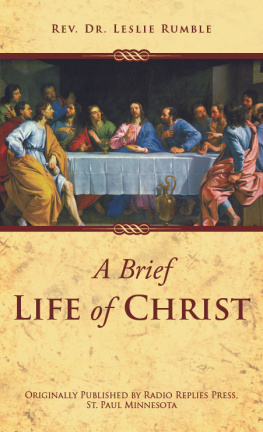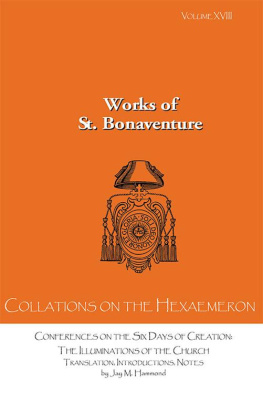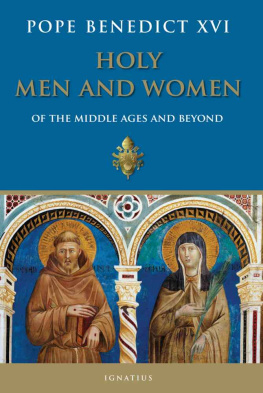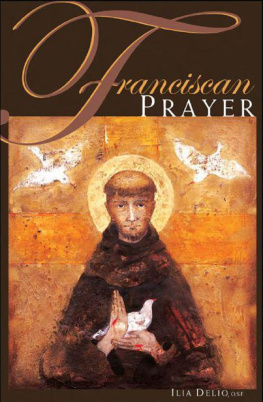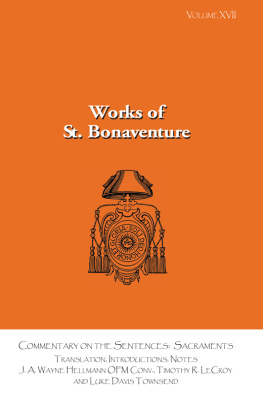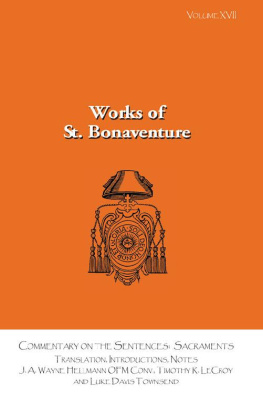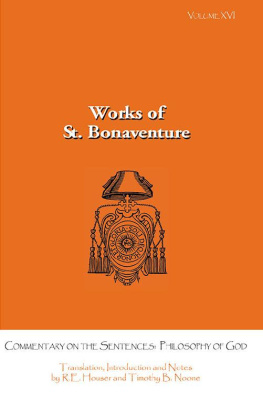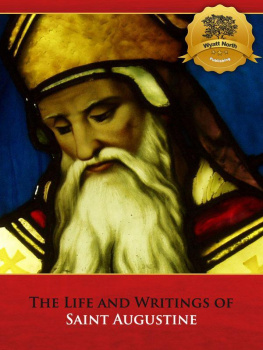PREFACE
Blessed is the man whom Thou shalt instruct, O Lord, and shalt teach out of Thy Law (Ps. xciii, 12.) I hold that only the man taught by the Holy Spirit and imbued with His blessed unction is to be considered wise. The Prophet David lays down the same principle; he alone is really happy and wise whose mind the Lord has made learned in the Law. The Law of God, David notes elsewhere (Ps. xviii, 8), is the only law without fault and irreproachable. It alone has the secret of converting souls to the way of salvation. To read the Law does not suffice. We only discover its wealth of meaning and reap the fruits of its profound learning through devout and affectionate meditation.
Conscientiously, in Spirit and in truth (1 Thess. i, 5.), are we to seek this meaning. We must beg the Holy Spirit, with ardent longing, to give us these fruits. The Holy Ghost alone knows how to bring to light the sweetness hidden away under the rugged exterior of the words of the Law. We must go to the Holy Ghost for interior guidance.
The Law of the Lord teaches us the way to live, what is to be done, avoided, believed, prayed for, longed for and feared. It teaches how to live the blameless and spotless life, how to keep ones promises, and how to be sincerely contrite for ones failings. The Law of the Lord teaches contempt for earthly things and a loathing for all things of the flesh. Finally, it explains how with our whole heart, whole soul, and whole mind we are to be converted to Jesus Christ (Matt, xxii, 37.)
Compared with the doctrine of Gods Law, worldly wisdom is vain and foolish. As long as a man does not fear or love God, no matter how great his reputation for wisdom may be, says St. Bernard, I shall never consider him wise (S. Bern. Serm. 73 de Diversis.) I would remind you that many forget what they hear, but these are not numbered among the wise. The truly wise man acts, and does zealously what the Law prescribes. The doer is the wise and the happy man. Blessed is the man whom Thou shalt instruct, O Lord, and shalt teach him out of Thy Law.
You asked me, Reverend Mother dear to me and devoted to God, to outline from the poor treasures of my heart some little thing that for the time being would be a help to devotion and would bring some light to your soul. Really, it is I who need such help, particularly as my life is not a shining example to others. Inwardly, I am not burning with tender devotion. Further, I have scarcely the knowledge necessary to do what you ask. Nevertheless, out of regard for your repeatedly expressed wishes, and anxious to oblige you, I have done what you so earnestly prayed of me.
Let me, however, beg of Your Beatitude, dear most holy Mother, not to think so much of what I have written, as of my good and kind intentions. Please look for the truths of which I speak rather than for beauty of expression. Where I do not come up to your expectations, pardon me, and put my shortcomings down, please, to lack of time and stress of business.
CHAPTER I
TRUE SELF-KNOWLEDGE
The spouse of Christ who longs to become perfect must begin with her own self. She must put aside and forget everything else, entering into the secrecy of her own heart. When she has done this, let her sift thoroughly all her weaknesses, habits, affections, actions and sins. She must weigh everything carefully, and make a complete examination of past and present. Should she discover even the least imperfection, let her weep in the bitterness of her heart.
Negligence, passion, and malice are the three root causes of sin (Cf. Bonaventures Threefold Way.) When we realize, dear Mother, that our sins and imperfections originate from one or other of these three causes, we enter on the way to an exact understanding of ourselves; but unless in our recollection of past offences we put our finger on the precise cause of each sin, we shall never reach the goal of perfect self-knowledge.
Perfect self-knowledge, I feel sure, is the object you propose to yourself. You wish, helped by such knowledge, to bewail your past transgressions. Since this is so you cannot do better than to proceed as follows.
First, discover by reflection whether you are occasionally or habitually negligent. Recollect whether the control of your heart is slipshod and haphazard. Are you careless in the use of your time? Is the intention you propose to your self habitually imperfect? Examine yourself diligently on these three points, because it is of the utmost importance that you govern your affections, that you spend your time profitably and that always and in every action you have a good and becoming object or end in view.
Recollect how negligent you have been in the discharge of your duties: prayer, reading, and the like. Remember that the performance of these tasks and the cultivation of these practices demand your best energies if you are to produce and bring forth worthy fruit in due season. (Cf. Ps. i, 3.) It is of little avail to excel in one practice if you fail in the others.
Go on with the examination, recalling to mind your neglect of penitential exercises, your negligent attitude towards temptation and sin, as well as your general disregard for the means of perfection. To reach the Promised Land you must weep with grief at the thought of the sins you have committed. Further, you must resist temptations to evil, and you must advance from virtue to virtue. (Ps. lxxxiii, 8.) Take to heart these principles, and you will be able to form a true estimate of your negligence.
Should you wish to pursue the subject and know yourself still better, take another look at yourself and ask whether your interior promptings tend towards pleasure, curiosity or vanity.

![Saint Bonaventure [Bonaventure Saint Bonaventure Collection [6 Books]](/uploads/posts/book/134206/thumbs/saint-bonaventure-bonaventure-saint-bonaventure.jpg)
